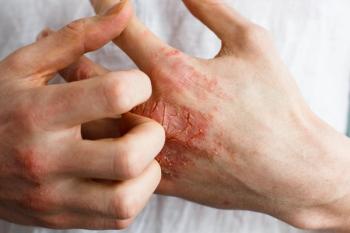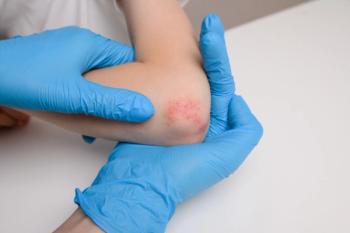
Metformin and Doxycycline Found Equally Effective in Treatment of Acne
Although both drugs led to a reduction in severity, doxycycline was more efficacious in reducing inflammatory lesions.
Drugs metformin and doxycycline demonstrated equal levels of efficacy in treating patients with acne vulgaris, according to a recent study.1
The assessor-blind, add-on, randomized, controlled clinical trial sought to compare the effectiveness of the 2 drugs, particularly in reducing inflammatory and non-inflammatory lesions. Researchers cited metformin’s role in reducing insulin-like growth factor 1 (IGF-1) levels and insulin resistance to explain why the drug may be effective in targeting the pathogenesis of acne vulgaris.
Patients ages 15 to 40 years old with moderate acne vulgaris were eligible for participation in the trial. In order to further qualify for study participation, patients could not have received either systemic treatment during the past month or topical treatment during the past 2 weeks leading up to the start of the trial.
Exclusion criteria included history of systemic disease, pregnancy, lactation, polycystic ovarian syndrome, reluctance to continue the study, history of allergy to either of the drugs involved in the trial, use of drugs with known reactions to the drugs involved in the trial, or use of contraceptive medications containing either estrogen or progesterone. Furthermore, patients presenting with acne conglobata or acne fulminans were ineligible to participate.
Upon selecting trial participants (n=40), researchers assigned participants to either the doxycycline or metformin group using random allocation.
Participants in the doxycycline group were instructed to take a 100 mg capsule by mouth on a once-daily basis. Members of the metformin group were asked to take a 500 mg tablet by mouth twice daily. In both groups, researchers instructed participants to apply a 5% benzoyl peroxide gel (Pangel) over all affected acne vulgaris lesions each evening before washing the gel off after 30 minutes.
In some cases, participants were advised to refrain from taking certain medications, such as betamethasone, bupropion, captopril, cimetidine, or retinoid drugs like isotretinoin.
Researchers collected participant data over the span of 2 months in which the participants were evaluated and treated. They instructed a blinded dermatologist to collect demographic data and disease-specific data, such as acne vulgaris severity and lesion counts. These measures included the Global Acne Grading System (GAGS) score, Investigator Global Assessment for Acne (IGA) score, Cardiff Acne Disability Index (CADI), and Total Acne Lesion Count (TLC). The dermatologist also used the TLC to specify whether lesions were inflammatory or non-inflammatory in nature.
After the trial’s conclusion, researchers found that patients being treated with doxycycline had experienced a 1.60 ± 0.50 change in IGA, while those being treated with metformin experienced a 1.50 ± 0.51 change from baseline to conclusion.
Additionally, changes from baseline to conclusion for CADI, GAGS, and TLC scores were not statistically significant or different between participants treated with either drug. Regarding each of these scales, members of both groups experienced significant improvements, though these improvements were not vastly different. However, participants being treated with doxycycline saw a more statistically significant reduction in inflammatory lesions than participants being treated with metformin.
Researchers noted that both drugs led to a reduction in acne severity, an increase in patient satisfaction and quality of life, an overall reduction in acne vulgaris lesions. Both drugs were well-tolerated, with reported adverse effects being mild-to-moderate in nature and not resulting in withdrawal from the trial. These included gastrointestinal discomfort (particularly on an empty stomach) when taking metformin and photosensitivity when taking doxycycline. Potential study limitations, as noted by researchers, included a small sample size, short treatment duration, short follow-up, and a lack of double-blindness.
“The reduction in the IGA score in both groups demonstrated that both metformin and doxycycline significantly reduced the severity of acne based on IGA criteria to a similar degree,” study authors wrote. “However, acne vulgaris lesions of the inflammatory type appear to improve more with doxycycline than metformin. It is necessary to design further clinical trials with a larger sample and longer follow-up to carefully compare the efficacy of doxycycline and metformin and their probable side effects.”
Reference
Sadati MS, Yazdanpanah N, Shahriarirad R, Javaheri R, Parvizi MM. Efficacy of metformin vs. doxycycline in treating acne vulgaris: An assessor‐blinded, add‐on, randomized, controlled clinical trial. Journal of Cosmetic Dermatology. Published online 2023. doi:10.1111/jocd.15785
Newsletter
Pharmacy practice is always changing. Stay ahead of the curve with the Drug Topics newsletter and get the latest drug information, industry trends, and patient care tips.























